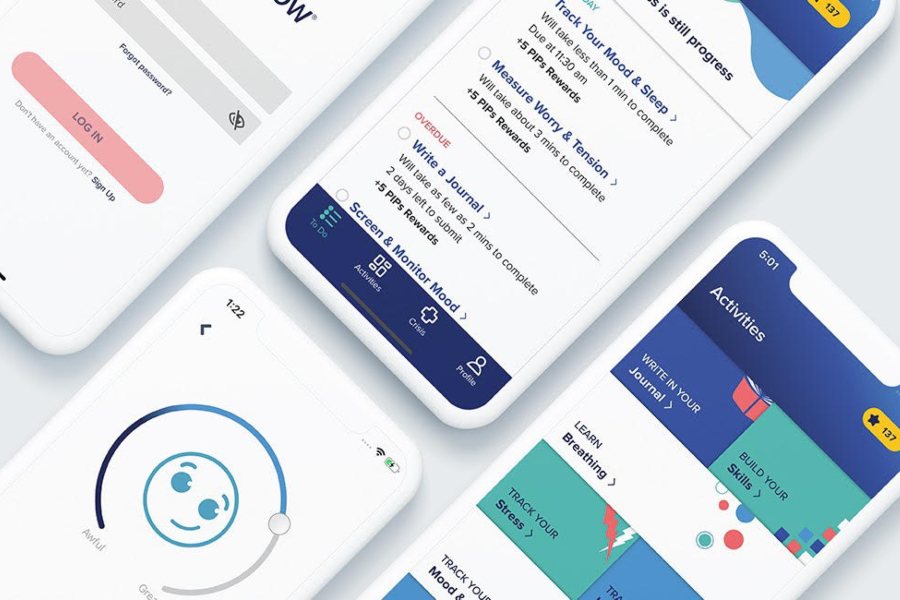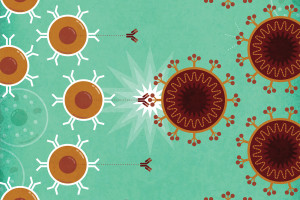NextUp: The Company Using Tech to Improve Outcomes for Mental Health Patients
NeuroFlow’s software enables behavioral health specialists and psychologists to remotely monitor a patient’s mental wellness.

The co-founders of NeuroFlow, Chris Molaro and Adam Pardes. / Courtesy Photo
“NextUp” is a weekly NextHealth PHL feature that highlights the local leaders, organizations, and research shaping the Greater Philadelphia region’s life sciences ecosystem. Email qmuse@phillymag.com with pitches for NextUp.
Who: Cofounders Chris Molaro and Adam Pardes launched NeuroFlow in 2016 in collaboration with the University of Pennsylvania’s neuroscience department. The founders initially aimed to develop technology that would help mental health professionals more easily diagnose Post Traumatic Stress Disorder (PTSD) in veterans. They’ve since shifted their focus toward a broader aim: enabling better access and engagement across the continuum of behavioral health care.
What: NeuroFlow’s technology includes a suite of products that help therapists gather timely information from patients in between traditional office visits. Clinicians can set reminders that encourage patients to complete wellness assignments, such as journaling or guided breathing or improve patient engagement through automated motivational emails and rewards. Clinicians can load custom content into the NeuroFlow app or web-based portal to digitally administer questionnaires, removing the need for paper surveys. The software also aggregates biometric data from wearables.
All of the data collected through NeuroFlow’s software is then sent to the care team to review for irregular behavior or struggles with treatment. The company also offers decision support tools that can be implemented in a range of clinical settings outside of behavioral health, including pain management, obstetrics and gynecology, and primary care.

Clinicians can load custom content into the NeuroFlow app or web-based portal to digitally administer questionnaires, removing the need for paper surveys. / Courtesy Photo
When: In July, NeuroFlow announced a new partnership with Jefferson Health, one of the largest health systems in Philadelphia. The partnership will result in a new, jointly-designed behavioral health platform being distributed to clinicians and patients at 20 locations across the Jefferson Health enterprise. To date, the company’s product has been implemented at more than 300 healthcare provider locations in four countries.
In July, NeuroFlow was one of 13 companies chosen to receive grant funding from The Venture Program, as part of the city’s StartupPHL initiative.
In 2018, NeuroFlow raised $2.28 million in the fourth quarter and achieved several usage milestones, including having more than 825,000 activities (including 520,000 screenings) completed on the platform. The company has raised a total of $3.5 million in venture capital to-date, with contributions from key investors including Independence Health Group, Ben Franklin Technology Partners, and Chestnut Street Ventures.
Why: According to the National Institute of Mental Health (NIMH), one in every five adults in the U.S. will experience a mental illness during their lifetime and more than 43 million adults experience mental illness in a given year. Sixty percent of those adults will not receive care for their illness. Of those who do receive care, Mental Health America found one in five, or 9 million adults, said they still had unmet needs.
What It Means: A lot can happen in a patient’s life between monthly visits to a therapist. This gap period creates opportunities for patients to become disengaged from their care team. With no way to track behavioral changes and other data markers in that interim, patients are left susceptible to adverse events and clinicians are forced to provide care that is primarily reactive.
NeuroFlow’s technology is attempting to bridge that gap by enabling practitioners to stay in constant contact with patients and encouraging patients to take a more active role in their care journey. Recent partnerships with small and large health systems around the globe could make NeuroFlow’s technology the future standard for mental health care.


